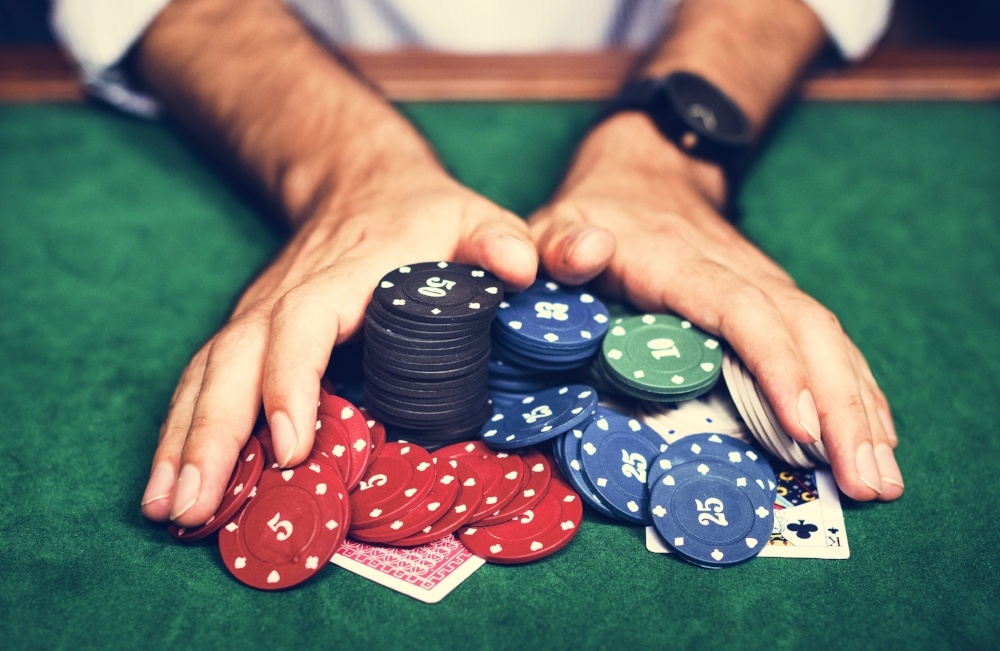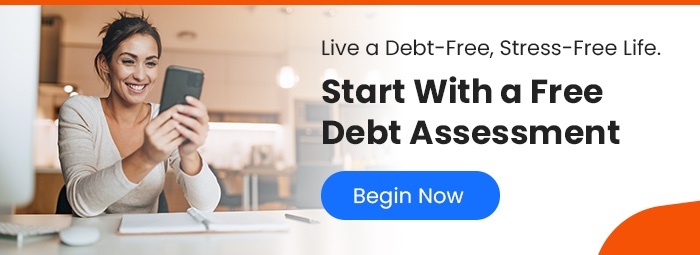
How to Financially Recover From Gambling Debt
Putting a couple of chips on a roulette table, pulling the lever on a slot machine or dropping a few loonies on a scratch-off ticket can be a lot of fun. But for some, the fun doesn’t just stop there—and online gambling hasn't made it any easier! Gambling can become addictive, and if “fun” has turned into “ugh,” it’s probably time to adjust the behaviour for a healthier financial future, and here's how!
What is Gambling?
We all know what gambling is, but what does gambling mean? When you participate in any type of game or event in which you risk losing money or something of value for a chance to win money or something of value, you’re gambling.
Gambling can be a game of skill or a game of chance, but regardless, the odds are generally not in the players’ favor, which is why many gamblers find themselves in debt over time. There are many types of gambling, including card games like poker and blackjack, casino games like roulette and slots, lotteries and scratchcards, horse racing, and sports betting.
So what is gambling addiction? While many people are able to do some casual gambling from time to time and know when to call it quits, many others are unable to stop; gambling then takes over their life. Canada’s Centre for Addiction and Mental Health (CAMH) puts a person’s level of gambling into five buckets:
- No gambling. They don’t gamble at all.
- Casual social gambling. Buying a lottery ticket every now and then or occasionally visiting a casino for fun.
- Serious social gambling. Playing regularly as a primary form of entertainment, but not allowing it to come before family or work.
- Harmful involvement. Playing regularly enough that it impacts work and social relationships.
- Pathological gambling. Gambling harms all aspects of a person’s life and they’re completely unable to control their urge to gamble.
Depending on the level of gambling an individual reaches, they can develop behavioural problems (missing work or family events, ignoring self-care, abusing drugs or alcohol, etc.), emotional problems (withdrawing from family and friends, experiencing mood swings, feeling suicidal, etc.), or financial problems (borrowing money, cashing in accounts, stealing money for gambling, etc.).
How to Stop Gambling
Giving up gambling can be easier said than done. Many people who are addicted to gambling refuse to admit they have a problem, and those closest to them may not realize there’s a problem because the gambler becomes very good at covering up or lying about where they’ve been or where any missing money has gone. “People who gamble excessively fear their loved ones will find them out,” says Robert Murray, Manager of the Problem Gambling Project at CAMH. “This drives them deeper into hiding and further into debt. They hope against hope a big win will end their problems.”
Unless you have the strongest of wills, there’s no easy answer for how to stop gambling on your own. Much like other addictions, such as alcohol or drug addiction, the gambling addict will need to seek outside help and support.
If you or someone you know is struggling with problem gambling, the good news is that there are resources available across Canada that can help. If you’re wondering how to help someone with a gambling addiction, we also suggest visiting the CAMH website to learn more about counselling and other programs.
How to Deal with Gambling Debt
Once you or a loved one has their gambling behaviour under control, the next step is to deal with the aftermath, also known as gambling debt! Unfortunately, gambling debts can build up to huge sums over time, so it can take some time, patience, and effort to overcome. However, it will be well worth it in the end. Here are seven tips to help you recover from your gambling debt.
1. Know Where You Stand Financially
When you want to get a handle on your finances you need to take an inventory of your financial life. That means determining your income, expenses, arrears, debts, and assets. While it might be an uncomfortable process, as it will likely highlight the true cost of gambling, it’s an essential part of moving towards a healthier financial future.
2. Figure Out Your Income
Determining income might be easy for those earning a consistent and regular income, such as weekly or bi-weekly paycheques. But for contractors, freelancers, and others working an irregular income, knowing exactly how much money is coming in on a month-to-month basis can be a difficult (if not impossible) task. Also, if you have a family, you’ll need to determine the household's monthly income, especially if the gambling debt impacts the family budget.
3. Determine Monthly Expenses
Listing out monthly expenses is an important step in the financial recovery process. Many expenses, like groceries and gas, can be determined by reviewing monthly bank or credit card statements. The biggies—rent or mortgage, car loans, and insurance—are likely paid out of a chequing account, so they can be averaged out as a monthly cost. You might have to estimate how much you spend on items like coffee and lunches but our free Budget Calculator and Monthly Budget Tracker can definitely help you track all your expenses.
4. Consider Accounts in Arrears
It’s oh-so important to know if you're behind on any monthly payments, like hydro, internet, phone, cable, personal lines of credit, and credit card debt. You can find out if you’re behind on any payments by checking the individual monthly statements for each account or by making a phone call to them (yes, you might be on hold for a good thirty minutes but this is a must, so put your phone on speaker and pick up around the house while you wait).
5. Calculate Your Total Debt
Canadians recovering from gambling debt will need to closely examine the debts they’ve accrued over the years. Again, bank statements will show automatic payments made on loans, as well as any payments made toward credit cards, lines of credit, etc. You may need to go through your mail and email to see what notices or information has been sent to you. You’ll also need to look through any paperwork to see what payday loans or similar loans are under your name.
6. Consider Your Assets
Having a full list of your assets can come in handy when looking at your potential options for dealing with your debts. For example, if you have a car that you can do without you can consider selling it to pay off your debt in one swoop to save thousands of dollars in interest charges.
7. Create a Spending Plan
Now that you’ll have all of this information gathered together, you can build out a monthly spending plan, including all debt payments. The goal here is to make sure monthly expenses do not exceed monthly income, but if that’s not the case you may want to consider meeting with a certified credit counsellor who can take a look at your current spending plan and see if they can make any adjustments that will balance out your income with your monthly expenses.
Gambling Debt? You're Not Alone
If all of this sounds too overwhelming you don’t have to do this on your own. One of our certified credit counsellors can help you put all this information together (for free!) and then assist you in exploring your different options for eliminating your gambling debt and moving forward in a positive way.
A good spending plan might just be what the doctor ordered to get you back on track, or maybe you can speak to your bank about refinancing your debts (just know that you’ll need a decent credit rating for this option). Or perhaps a Debt Consolidation Program with Credit Canada could be the solution you need; our counsellors will explore and assess different options that can help you achieve your financial goals.
Gambling can lead to serious financial troubles but by reaching out and seeking help, moving forward can be much easier and faster. Call1.800.267.2272 to book a free counselling session with a certified Credit Counsellor. It’s confidential, non-judgmental, and completely free!
Frequently Asked Questions
Have questions? We are here to help
A Debt Consolidation Program (DCP) is an arrangement made between your creditors and a non-profit credit counselling agency. Working with a reputable, non-profit credit counselling agency means a certified Credit Counsellor will negotiate with your creditors on your behalf to drop the interest on your unsecured debts, while also rounding up all your unsecured debts into a single, lower monthly payment. In Canada’s provinces, such as Ontario, these debt payment programs lead to faster debt relief!
Yes, you can sign up for a DCP even if you have bad credit. Your credit score will not impact your ability to get debt help through a DCP. Bad credit can, however, impact your ability to get a debt consolidation loan.
Most people entering a DCP already have a low credit score. While a DCP could lower your credit score at first, in the long run, if you keep up with the program and make your monthly payments on time as agreed, your credit score will eventually improve.
Anyone who signs up for a DCP must sign an agreement; however, it's completely voluntary and any time a client wants to leave the Program they can. Once a client has left the Program, they will have to deal with their creditors and collectors directly, and if their Counsellor negotiated interest relief and lower monthly payments, in most cases, these would no longer be an option for the client.

